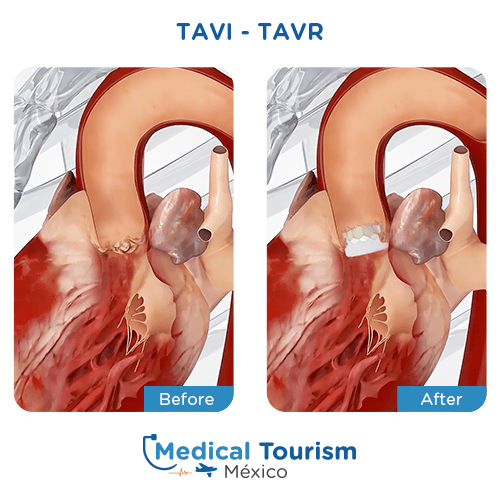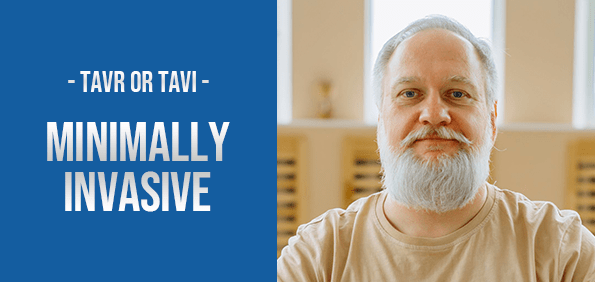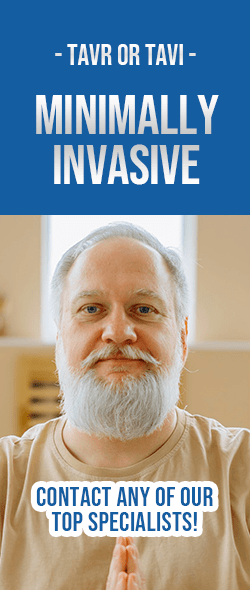The most reliable doctors in Mexico
Transcatheter aortic valve replacement information and locations in Mexico
A transcatheter aortic valve replacement (TAVR) or transcatheter aortic valve implantation
(TAVI) is a minimally invasive procedure in which a new valve is implanted over the aortic valve
to help restore the blood flow affected by severe aortic stenosis.
With this procedure, patients may have the option of using local or general anesthesia throughout the treatment. A minor incision may be made on the groin, neck, or chest, depending on the patient. The replacement valve is then inserted into the damaged valve using a thin, flexible tube; similar to a stent, it pushes against the old valve and keeps the blood flowing.
Get professional services with the best heart surgeons in Mexico!
Benefits
Improves heart rate
Improves life expectancy
Allows active lifestyle
Minimally invasive
Improves life expectancy
Allows active lifestyle
Minimally invasive
Includes
Heart valve
TAVR
Procedure:
4 hrs.
Hospital stay: 2 - 4 hrs.
Cleared to fly: 7 - 10 days
Hospital stay: 2 - 4 hrs.
Cleared to fly: 7 - 10 days
After surgery
Out of town patients’ follow-ups are scheduled with the cardiovascular surgeon after 5 days of surgery. Patients are
clear for flying after 7 - 10 days from the coronary artery bypass.
Note: Follow-ups can be arranged as face-to-face or virtually. If needed, you can go to your primary care physician to remove sutures or get medication adjustments.
As an Amazon Associate, we earn from qualifying purchases.
Take a look at one of our medical tourism essentials for cardiology procedures.
Take a look at one of our medical tourism essentials for cardiology procedures.
Before and after images
View additional images for this procedure.

View more


Locations
Select the city of your choice to seethe doctors profile.
Ciudad Juarez, Chih.
Dr. Javier A. Torres
View more

Transcatheter aortic valve replacement frequent questions
Get answers to our most frequently asked questions and what to expect after the surgery.
Am I eligible for TAVR?
Severe aortic stenosis, an intermediate or high-risk consequence of aortic valve replacement, is a need for surgery (open-heart surgery).
Will the surgery be painful?
Doctors use general or local anesthesia to numb the area, so you don’t feel pain, however, you might be awake during the procedure.
How do I prepare for the procedure?
Your medical history will be investigated by your doctor throughout the consultation. You’ll need to stop taking some medications.
What happens after surgery?
You'll need follow-up checkups, lifestyle adjustments, and excellent dental hygiene post-surgery and recovery.
Recent news
Disclaimer: This information does not reflect the medical advice from our clinics. All cases are different and this treatment may not suit you. Always refer to a medical professional with the certification and experience. All of our physicians are fully qualified to perform these procedures. For more information and diagnosis contact one of our top specialized clinics.
In all medical procedures, there are chances of complications, the specialist will provide you detailed information about the risks of the procedure, talk to the specialist directly.
In all medical procedures, there are chances of complications, the specialist will provide you detailed information about the risks of the procedure, talk to the specialist directly.





